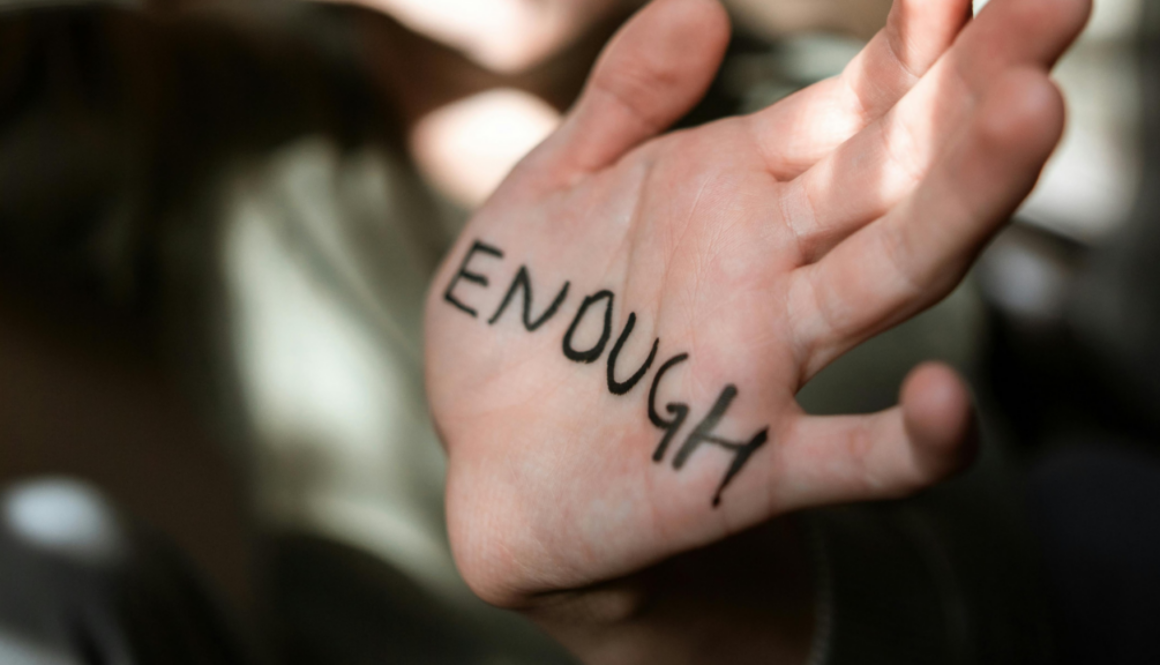Step Zero: The Moment Before Real Transformation
Enough is Enough
We often talk about the “first step” toward change, the dramatic leap into a new chapter. But before you can take that first step, there’s a quieter, more fundamental shift that has to happen—the one that happens inside. Step-zero isn’t a part of the journey you see on motivational posters or hear in self-help books, but it’s arguably the most crucial part. It’s that point where you no longer can tolerate staying the same, where the weight of your current life becomes heavier than the uncertainty of change. In this post, I want to talk about that crucial precursor to transformation—the step-zero—and explore how it’s often the small, seemingly unintentional shifts that can lead to the most profound changes in our lives.
What is Step Zero?
Step Zero is not the first step toward change; it is the prerequisite for change. It is the moment when a person recognizes the need for change and commits to doing something about it. There’s always talk about what first steps are, but this post aims to talk about what happens before we decide to take that first step.
A baby starts crawling because they’ve had enough of just sitting there, they want to go about and learn new things. A person gets a second job because they’re tired of living paycheck to paycheck, or maybe they need to stay occupied so they don’t get themselves in any trouble. The point is that we make changes in our life because what we were doing will no longer work for us, but if the status quo is ok, then we will never seek that change.

Why is Step Zero Necessary?
We all think, dream, and pray about making our lives better. Whether it’s waking up with more purpose, breaking a toxic habit, or simply becoming more consistent, the desire to improve is deeply human. But with so many distractions in today’s world—notifications, social pressures, past traumas, and daily responsibilities—our momentum often stalls before it even begins. The vision is there, the desire is real, yet we find ourselves caught in a cycle of false starts and quiet frustration.
And then there’s the weight we carry—the shadows of our past, the influence of people around us, and the often-overlooked war happening in our own minds. It can feel like everything is conspiring to pull us back to a familiar place of comfort, even when that place is full of dysfunction or pain. Change, real lasting change, starts to feel out of reach.
Until we reach that pivotal moment. The moment where going back is no longer an option. Where staying the same becomes more painful than the risk of stepping into the unknown. It’s only then—when the idea of change moves from our head to our heart, from wishful thinking to a soul-deep conviction—that transformation becomes possible.
You can want to stop drinking, lose weight, be more disciplined with your time, or break whatever cycle you’re trapped in. But unless that desire ignites something inside you, something fierce and unshakable, the change you seek will continue to slip through your fingers. It has to resonate so deeply that it begins to burn—a fire that fuels your decisions, shapes your habits, and becomes part of your identity.
Until that moment comes, change is just a concept. After that moment, it becomes a lifestyle.
What Does Step Zero Look Like?
I’ve had a few step-zero moments in my life—those raw, undeniable turning points where continuing the way I was living just wasn’t an option anymore. Moments where the pain of staying the same finally outweighed the fear or discomfort of change. Each of those times, something had to break inside me before I could begin building something better. What’s interesting, though, is that the biggest issue I’ve ever faced—alcoholism—never came with a dramatic crash. There was no typical “rock bottom.” No intervention. No epiphany in the mirror or wake-up call from someone close to me.
I stopped drinking not because I wanted to fix my life, but because I got tired of not being able to drive. That was it. I wanted my driving privileges back. And to get them, I had to jump through a series of hoops: attend 12-step meetings, undergo daily alcohol and drug screenings, sit in court-mandated programs. It wasn’t about finding freedom from addiction at first—it was about checking boxes, doing what I had to do. But somewhere in that process, without me realizing it, sobriety took root. The structure, the repetition, the accountability—all of it began to shape me. I didn’t quit drinking out of desperation; I quit out of inconvenience. And yet, that became the gateway to a better version of me.
What fascinates me now is how change sometimes sneaks in the back door. Not every transformation starts with drama or fireworks. Sometimes it starts with paperwork, early mornings, or doing something you resent—until it starts doing something for you. That experience makes me wonder how many others out there have similar stories. Not the picture-perfect recoveries or the crash-and-burn testimonies, but the quiet pivots. The accidental redemptions. The changes that started for one reason and kept going because something deeper was growing underneath.
I’m curious—have you ever had a change begin that way? Not from hitting bottom, but from bumping into something that forced a shift? I’d love to hear other stories where growth came from unlikely beginnings. Because sometimes, it’s not the step-zero that changes us—it’s what we do after we stumble into it.
Final Thought
I love the concept of step-zero—that moment when you just can’t go on living the same way anymore. It’s the internal collapse that leads to a rebuild. The moment you stop making excuses and start making moves. I always picture The Matrix, when Neo finally stops running. He turns around, raises his hands, and the bullets freeze in mid-air. That’s it. That’s step-zero. The moment he realizes he can’t keep running, and everything changes.
But here’s what I’m starting to notice: some of the most life-altering shifts don’t feel like that moment at all. They don’t come with fireworks or clarity. They’re the collateral effects of that deep internal shift. The kind of changes that unfold when you finally get tired of your own patterns and start doing something—anything—different.
Take the person who picks up a second job just to stop living paycheck to paycheck. On the surface, it’s just about survival. A financial fix. But underneath it, there’s usually a step-zero—maybe they hit a wall financially, emotionally, or mentally, and knew something had to give. That decision, that movement, creates a ripple effect. They start working. They meet new people. They learn new skills. One thing leads to another, and before they know it, they’ve stumbled into a business or a calling they never saw coming.
It wasn’t part of the plan. It wasn’t a dream on a vision board. But it was real—and it was rooted in that original step-zero decision to stop living the same way.
These “unintentional” changes are rarely unintentional at all. They’re born from a deeper resolve. They’re evidence that a shift has already taken place inside. They don’t always announce themselves, but they show up when you start moving in a new direction, even if it’s small. They are the fruit of the seed planted in crisis.
The big step-zero moments are powerful—they break the cycle and point you in a new direction. But the real magic often happens in what follows. Once that shift takes hold, it’s not just about the initial change; it’s about the energy it sets in motion. New habits form, new people show up, and new opportunities quietly unfold. It’s easy to overlook these subtle shifts, but they are the transformation in motion. That’s why it’s important to stay tuned in after your step-zero moment—because what begins as a decision to stop drinking, change careers, or take better care of yourself may evolve into something beyond what you ever imagined. Step-zero doesn’t just change your direction; it changes your capacity. And when you move forward with intention and openness, the ripple effects can take you places your old self wouldn’t have even dared to dream of.

